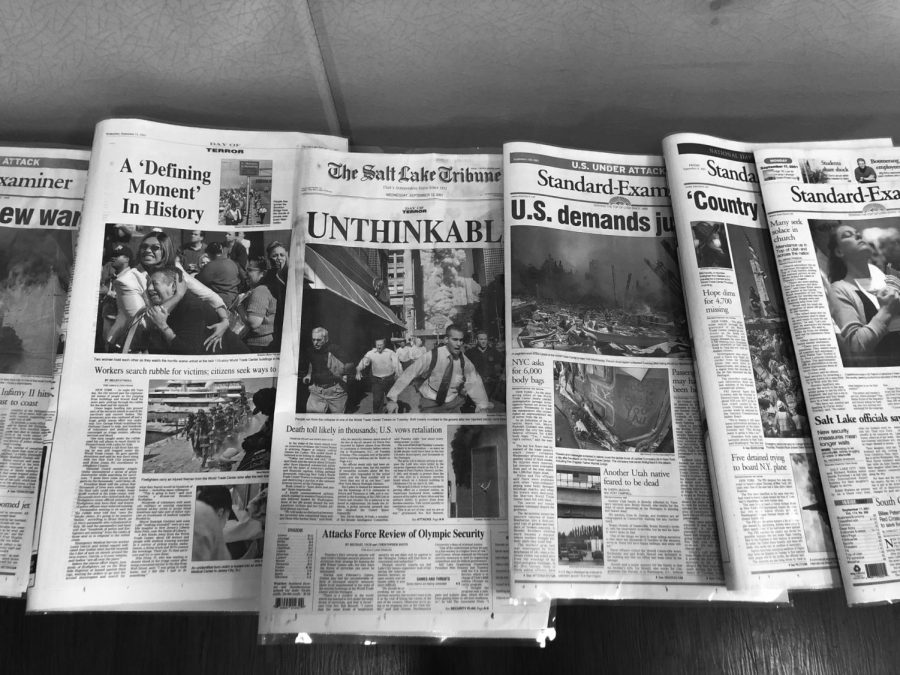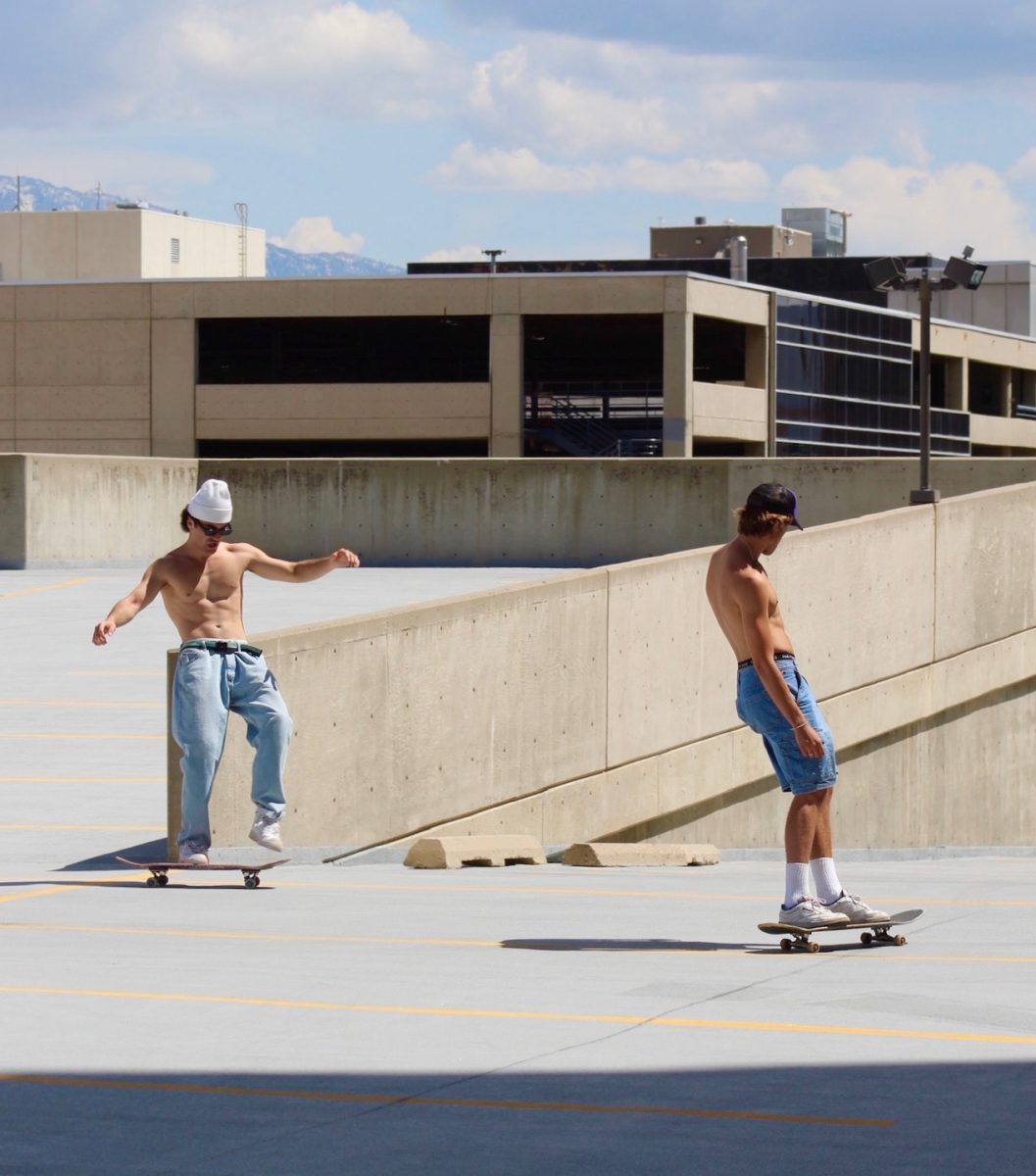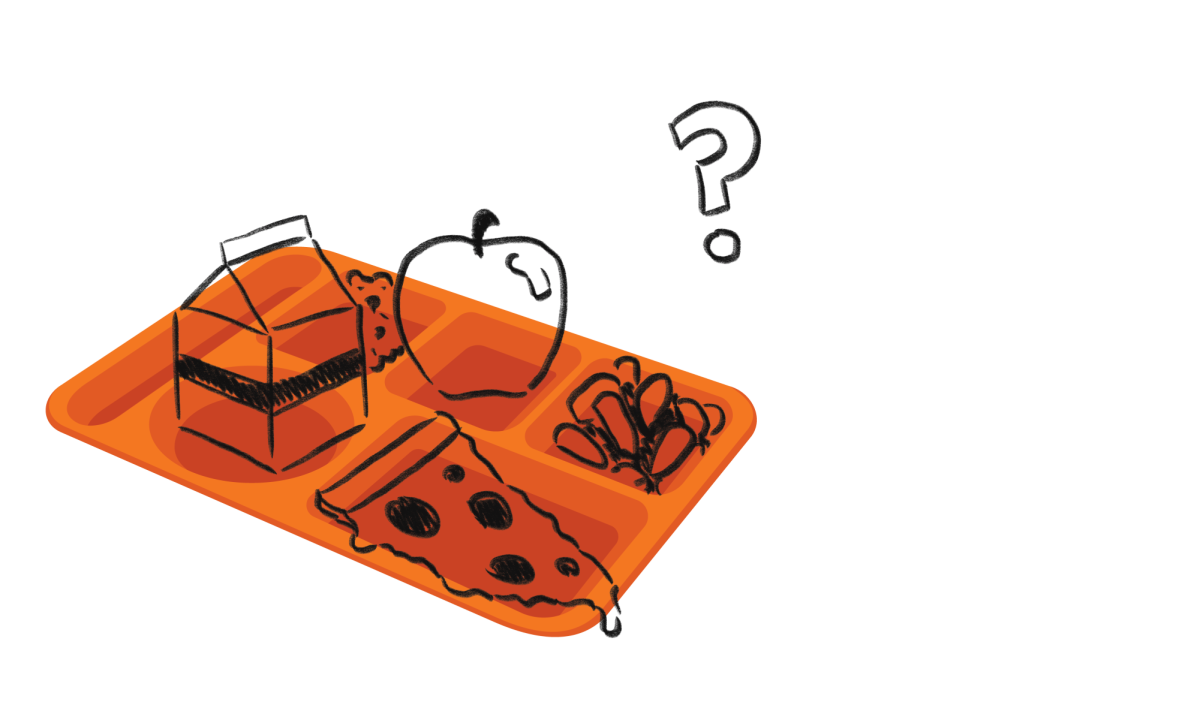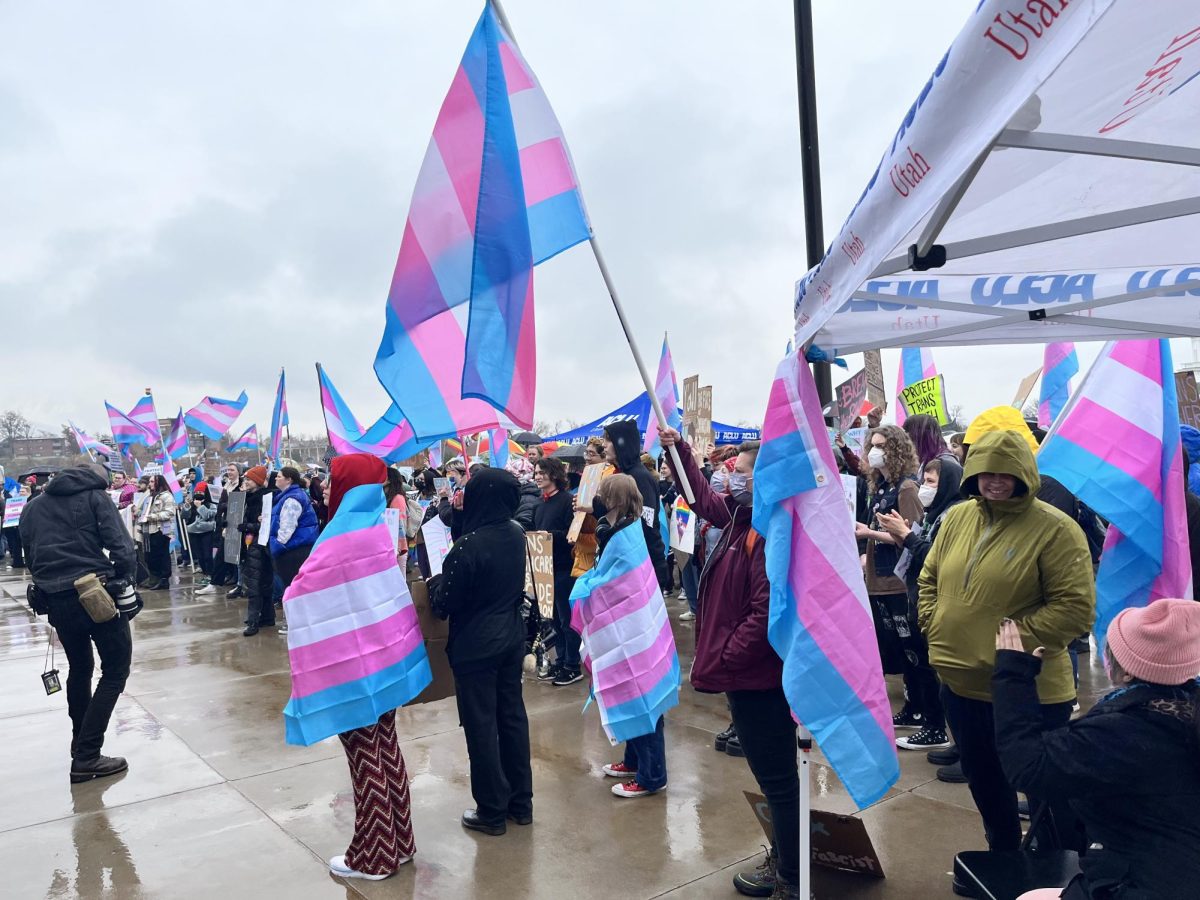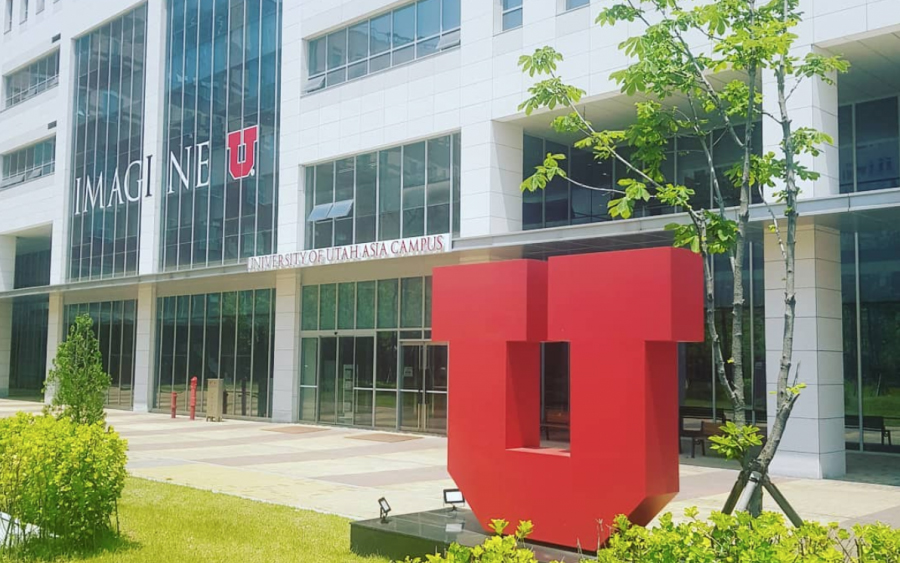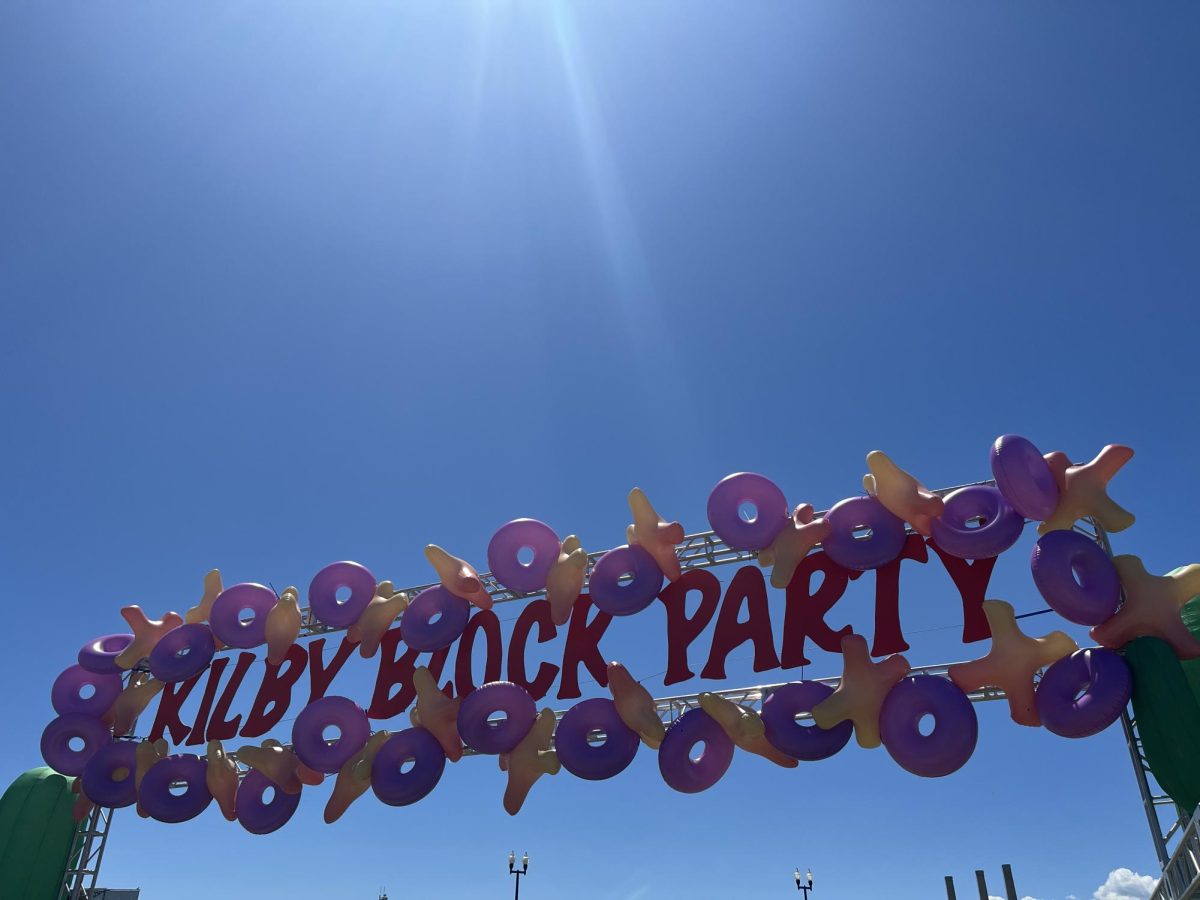21 Years Later, the Muslim Community Reflects on the Aftermath of 9/11 in Emerald Project Event
Newspapers published in the days following 9/11, at Emerald Project’s event on Sept. 11, 2022. (Photo by Kayleigh Silverstein | The Daily Utah Chronicle)
September 12, 2022
On Sept. 11, 2001, Zahid Nazir was working in the building across from the World Trade Center. His office was so insulated the workers normally could not hear any of the city’s noise. But, on that day 21 years ago, Nazir heard a plane.
He remembers running to the Brooklyn Bridge, looking back and seeing the city cloaked in dust.
After his building was permanently closed down due to contamination from the debris of the attacks, he tried to be around people so he could process the trauma he had endured. For the next few days, he shivered.
The Panel
After the 9/11 attacks, Islamophobia and anti-Muslim hate crimes in the United States spiked.
In 2021, The Associated Press reported 53% of Americans have unfavorable views of Islam.
On the 21-year anniversary of 9/11, a group of Salt Lake community members gathered in a room on the University of Utah’s campus to discuss the aftermath of 9/11 and the harms caused to the Muslim community. Lead by Emerald Project, an organization focused on combatting the misrepresentation of Islam, this event was organized to showcase the different realities of those whose lives were forever impacted by this day.
Amber Pederson, a Westlake Junior High teacher, and Zahid Nazir, a Qualtrics program manager, sat at the front of the room, side by side, to talk about their experiences as a non-Muslim and Muslim, respectively, in the aftermath of 9/11.
Pederson was in college at the time of the attacks. A friend of hers was an international student from Pakistan. She said after 9/11, everything changed for him — everyone looked at him differently, he received hate notes, his belongings were vandalized and he did not make it through school. Pederson wishes she had spoken up.
“When we go through, collectively as a society, [something] that’s traumatic and fearful, you have to be so careful that we do not let fear take the driver’s seat,” Pederson said. “Because when we do, it alienates people.”
After the events of 9/11, Nazir saw a huge impact on the Muslim community in Brooklyn. He said many people lost their immigration and medical documents in different buildings, and some were rounded up and questioned. They were then detained and abused.
Before 9/11, Nazir said Muslim individuals were able to live freely. Afterwards, however, their personal security became their top concern.
“Whenever we went outside, we had to be a little bit more careful about where we are going, what kind of people we might encounter and we had to be a little bit more safe,” he said.
Nazir said depictions of Islam in media are not always accurate.
“I think the best thing is to kind of become friends with somebody of the Muslim faith,” he said. “Sit down with them, have a conversation … that’s where you really understand what the challenges and issues are.”
Emerald Project
The project started after the 2017 Muslim Ban, when former President Donald Trump signed an executive order banning travel to the United States from seven predominantly Muslim countries.
“Even though the Muslim Ban has been repealed, it didn’t happen out of thin air right?” said Nora Abu-Dan, one of the co-founders of Emerald Project. “There are real reasons why people felt that way towards Muslims and felt that there should be a Muslim Ban. There are real reasons why the Patriot Act was enacted. There’s real reasons why we have TSA and different things that came about afterwards.”
Abu-Dan said she originally just wanted to make lasting change through candid conversations with the Muslim and non-Muslim community. She organized a few events with other Muslim individuals who wanted to make change. After receiving a lot of interest in their different programs, they knew they had something important to organize around.
So, Emerald Project was born.
“I’m sure you’ve seen in the media in today’s society, there’s a lot of these misrepresentations, stereotypes, misinformation, about what Muslims believe,” said Shayma Salih, the director of outreach for Emerald Project. “So Emerald seeks to come together through education, through open discussions or community events, youth empowerment, to show what Muslims are really about, what Islam is really about …”
Salih said no matter one’s faith or nationality, everyone was impacted by 9/11, just in different ways.
She appreciated today’s panel because she feels like these stories are not accurately or frequently shared through the media.
“It parallels a lot of what my parents have gone through — my parents were Muslim immigrants, they came from Kurdistan in the 90s, so they were in Utah in 2001,” Salih said. “People stopped talking to them, their neighbors didn’t want to live next to them anymore.”
Salih wants people to know Emerald Project does not believe in bad questions — they welcome anyone who wants to learn more.
To close out the event, Abu-Dan spoke to the audience.
“It is our responsibility to ask questions and seek the truth if we wish to live in a world that reflects the morals we claim to embody,” she said. “No one person has the whole truth. But when we set aside our fears and ego to connect to each other, we can finally see the painting that is reality.”


